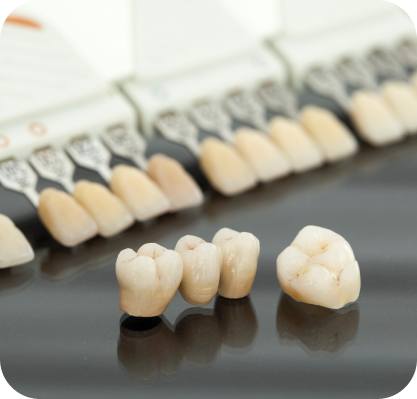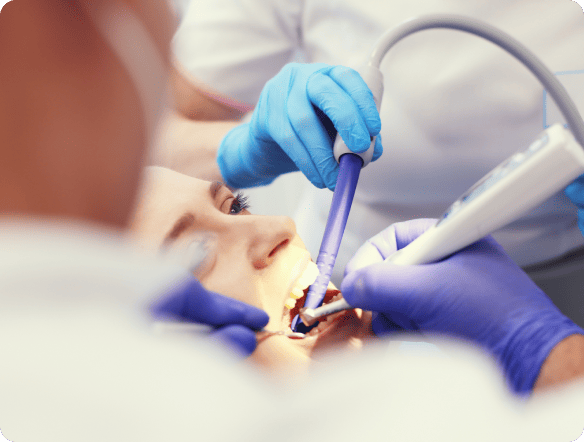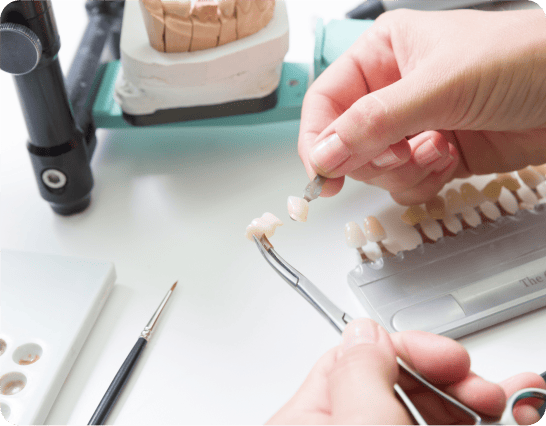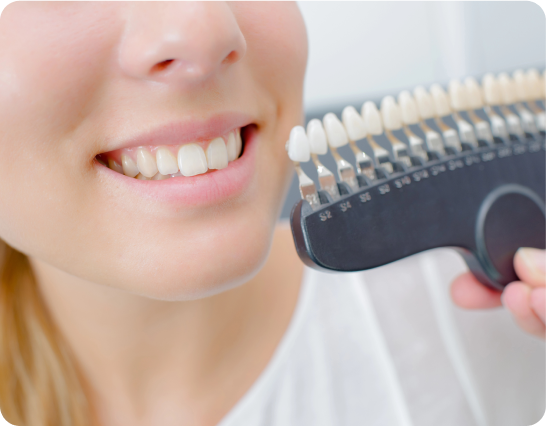Dental Bridges in Montclair, NJ
Dental Bridges in Montclair, NJ
Every tooth plays a key role in speaking, chewing, and aligning surrounding teeth. Tooth loss affects oral function and health. Fortunately, several options exist to replace missing teeth and restore your smile.
A dental bridge is a reliable solution to restore balance to your bite, prevent further dental issues, and keep your smile looking natural. Missing one or multiple teeth? A well-crafted bridge can help you regain confidence and maintain long-term oral health.



What Are Dental Bridges
A dental bridge fills the gap left by missing teeth by attaching artificial teeth to neighboring natural teeth, called abutment teeth. Bridges come in two main types: fixed and removable.
Fixed bridges are permanently secured using crowns or by bonding artificial teeth directly to adjacent teeth. On the other hand, removable bridges or partial dentures use metal clasps or precision attachments to stay in place.
Missing teeth impact more than just appearance. They affect functions like eating and speaking. A fixed bridge offers a long-lasting solution to restore both function and aesthetics.
Understanding Dental Bridges And Fixed Partial Dentures?
A dental bridge replaces missing teeth to maintain oral health and structure. Fixed bridges stay in place permanently and can only be removed by a dentist. However, removable bridges can be taken out for cleaning.
Fixed bridges provide better stability than removable options. They offer a strong and reliable way to replace lost teeth.


Why Choose a Dental Bridge?
A dental bridge restores function and improves appearance. Missing teeth can cause facial sagging, leading to a sunken look that makes you appear older. A bridge helps maintain the natural shape of your face while keeping your teeth properly aligned.
Gaps left by missing teeth can disrupt your bite and strain gums. This imbalance can lead to further dental issues, including a higher risk of gum disease. A bridge helps prevent these problems and supports clear speech by replacing the missing teeth for proper pronunciation.
How Is a Dental Bridge Fitted?
Getting a dental bridge usually requires two or three visits. During the first appointment at Edgemont Dental, Dr. Davidson prepares the adjacent teeth. He carefully reshaped the enamel and dentin to accommodate the bridge.
Since the bridge must fit precisely for a comfortable bite and natural appearance, we take impressions of your teeth and send them to a dental lab for custom fabrication.
Once the bridge is ready, we secure it to the adjacent teeth with crowns or bonding techniques. The artificial tooth, or pontic, fills the gap and restores function and aesthetics.




Materials Used for Dental Bridges
Bridges can be made from various materials—gold alloys, non-precious alloys, porcelain, or a combination of these. They may also use porcelain with metal to create a durable, natural-looking finish.
Frequently Asked Questions About Dental Bridges
Benefits of Dental Bridges
- Dental bridges offer a non-surgical solution for replacing missing teeth
- They restore complete dental functionality, enabling efficient chewing and speaking.
- Bridges enhance the appearance of your smile by filling in gaps from missing teeth.
- They help prevent neighboring teeth from shifting out of position.
- Unlike dentures, fixed bridges remain stable and do not shift.


Drawbacks of Dental Bridges
To secure a dental bridge, the adjacent teeth must be reduced in size to accommodate the bridge’s crowns. Additionally, a dental bridge does not address bone loss in the jaw caused by the absence of a tooth root. It’s important to discuss these limitations with your dentist before proceeding with a dental bridge.

Cost of Dental Bridges
The price of dental bridges can vary widely based on the type and placement, typically starting at around $5,000. Bridges designed to replace a single tooth may be less costly if they are anchored by the two adjacent teeth.

Longevity of Dental Bridges
With proper care, a dental bridge can last between 5 and 15 years, with the average lifespan being 8 to 10 years. Regular dental checkups, professional cleanings, and diligent at-home care can help extend the durability of your bridge.

Number of Teeth a Bridge Can Replace
Dental bridges commonly replace one or two adjacent teeth. However, a bridge that replaces more teeth may be less stable and put additional stress on the supporting teeth. For replacing multiple missing teeth, implants may be used to provide better support for the bridge
Join Our Newsletter
Receive special discounts and the latest news to help you maintain a healthy, beautiful smile!
